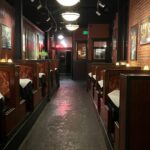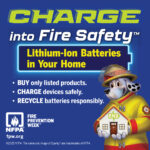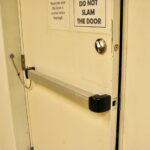When a tragedy occurs, there is often an immediate response – a call for solutions to avoid similar incidents in the future. The urgency tends to fade in the weeks and months that follow, but in many cases, code changes have already been set in motion that will improve life safety in the future.
Today is the 14th anniversary of the fire at the Station Nightclub in West Warwick, Rhode Island, where 100 people were killed. Last Friday was the 14th anniversary of the E2 Nightclub crowd-crush incident in Chicago, where 21 people died. Because of the timing of these tragedies – when I was becoming more involved with code development, they have had a lasting impact on me – more than the events that occurred long before I was born. But all of these fires and other tragedies serve an important purpose for those of us who work in a code-related field. We can learn from them, and effect change in the codes to better protect building occupants going forward.
In March of 2003, just after the tragedies at the Station and E2 nightclubs, NFPA’s Technical Committee on Assembly Occupancies held an emergency meeting. Al Gray, an NFPA member who had lost his son Derek in the Station fire, spoke:
“I do a lot of training, and I do a lot of speaking when I train, and if there is anything I can do to help people try to understand the hazards in life—sprinklers, evacuation, home evacuation, fire extinguishers in their homes, carbon monoxide detectors—anything that I can say, I feel that it might put some emphasis on that might save someone’s life. I feel that I accomplished something. I try to remind people what happened, and I ask them if any of them have children. I’m there to remind them, because I think people have forgotten. It’s very hard to get up every day and go to work, but I tell myself if there is anything I can do, I have to do it.”
There are many valuable resources to help us learn more about what happened and how to avoid similar situations. What’s scary to me is how many blocked exits and disabled fire doors are still out there – as evidenced by the multitude of Wordless Wednesday and Fixed-it Friday photos I receive. The NFPA case study on nightclub tragedies is a great place to start learning about these events, and NFPA’s page on the Station Nightclub fire includes links to numerous resources. As I’ve said before, it’s our responsibility to continue to educate people about the risks that accompany these non-code-compliant practices.
You need to login or register to bookmark/favorite this content.






I think what you do here certainly touches on much of what I have seen in my life. I have always believed that if you can get people’s attention long enough to give them the general principles of fire safety as you address a finding like you often picture here, that would help because so many people I have encountered in my health care settings are so caring and smart, it is important that they are properly instructed on fire safety. For those hard learners, there is always: “If you don’t correct this, I have the power to lock the place up (and you too if necessary).